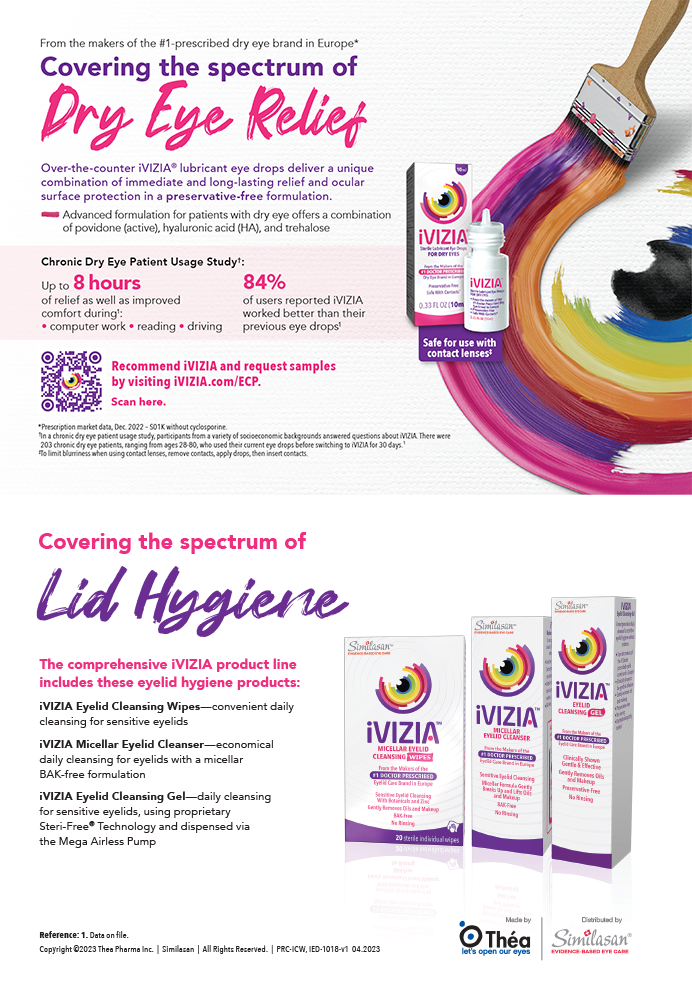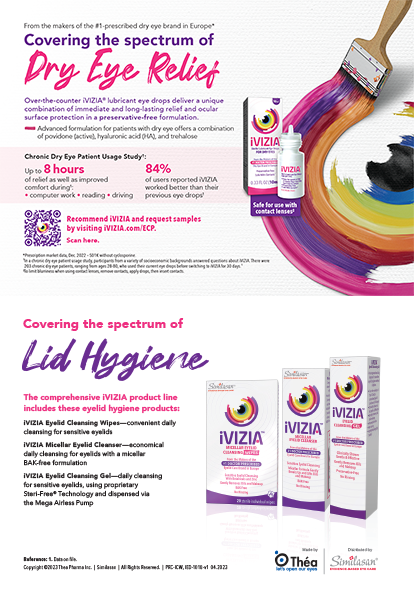In a high-end service business like refractive surgery, there is simply no substitute for face-to-face, in-person communication between the provider and the customer. If practitioners could entice all the consumers interested in refractive surgery to meet them in person, many more procedures would likely take place. The closest many inquirers ever come to having refractive surgery, however, is picking up the telephone, so it's high time that surgeons recognized just how important the phone is to their business.
DIRECTOR OF FIRST IMPRESSIONS
For any business, the person answering the telephone is (or should be) part of the marketing department. In fact, his title ought to change from Receptionist to Director of First Impressions. This idea is based on age-old wisdom: You only get one opportunity to make a first impression, so you must make it a good one. Indeed, it is sobering to realize that a consumer's impression of your business—your surgical skill, care for patients, and investment in equipment and facility—is formed largely by how the phone is answered on that first call. Notice in the previous sentence the use of the word ?how?; in fact, how the phone is answered is initially much more important than what is actually said.
The Right Person for the Job
Your Director of First Impressions should be the most pleasant person you can find—someone not easily rattled who is never robotic in his response. If you pay your staff based on what they can contribute to practice revenue, this person should be among the highest paid, because he has the ability to make or break the number of patients who actually walk through the door. He must have a near-magical ability to juggle multiple calls on several lines, empathize with callers (making them feel important and special) and deliver to them the information they need. You can easily cripple these skills, however, by overloading your Director of First Impressions with other duties and responsibilities for the sake of staff efficiency. In the long run, this would be a penny-wise but pound-foolish decision.
Only once you've addressed how your practice's phone will be answered will you be in a position to move on to the next step—what the designated Director should say to callers inquiring about your refractive surgery offering. The order here is important, because most providers emphasize the content rather than the feeling. For refractive surgery, the “what” part of the phone call should answer four basic questions: (1) What is the procedure? (2) How much does it cost? (3) Why would I choose you over another provider? and (4) Where can I learn more?
The answers to these questions should be discussed with all staff, heavily scripted, and coached through a role-playing process in which every staff member sits in the ?hot seat? and learns how to answer appropriately. The key is that staff members must develop enough skill to be nondefensive (especially when it comes to pricing), to be able to ask questions of the inquirer in order to understand his or her perspective, and to provide enough information to assist the caller in moving to the next step (which could be to receive an informational package, attend a seminar, schedule a consultation, or watch a procedure).
What often happens, though, is that the caller will sound hurried and impatient, and staff members respond in kind. It doesn't take much from a caller to make a staff person defensive by asking: ?Why do you charge so much for a 10-minute procedure?? The key is to avoid taking the bait. Whether the response is deadpan or humorous, the goal should be to relax the caller—if even for a moment—and create an opportunity to learn about and address his needs.
Communications Training
Your Director of First Impressions needs solid training in order to make the telephone an effective substitute for face-to-face communications. Surgeons too often take for granted the skills needed to be as communicative over the phone as in person. In order to be well-honed in each of those staff members who ?touch? your patients and prospects via telephone, such skills require training and retraining. This idea also holds true with each alternative to face-to-face meetings: cell phones, e-mail, and snail mail, among others.
PLEASE HOLD
Have you ever noticed your own reaction when you make a phone call and hear an unpleasant voice on the other end? What about when you are put on hold? I personally can't stand it. A friend of mine simply hangs up after 30 seconds on hold—even with his own customers! What do you do? Let the answer be a guiding force in how your staff handles calls to your office every day. Yes, the prospective patient must visit your office in person to determine his suitability for a refractive procedure, but don't let that keep you from making the most of the telephone conversation.
The initial phone call is the moment when perception becomes reality; many of the battles to build interest in refractive surgery are lost at this very point in time. Your time and money are best spent finding and keeping the very best person(s) available to manage callers in an inviting manner and motivate them to learn more. No fancy psychology is required here, just basic politeness and a desire to help. This way, the phone becomes an important weapon in your business arsenal and paves the way for the next step: the face-to-face meeting. When performed effectively, telephone interactions go a long way toward building the relationship you need and want with your prospective patients before they ever walk through your door.
Each month, industry veteran Shareef Mahdavi looks at a different topic relating to the business of refractive surgery and explores how mistakes from the past can be used by all providers for effective marketing. He provides marketing counsel to medical manufacturers as well as individual physicians and is based in Pleasanton, California. Mr. Mahdavi may be reached at (925) 425-9963; shareef@sm2consulting.com.


